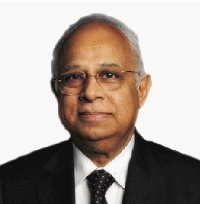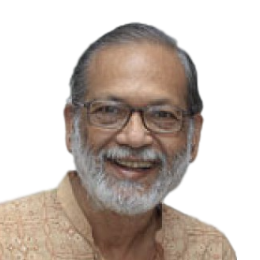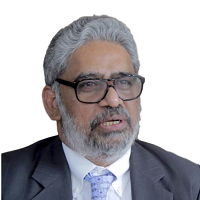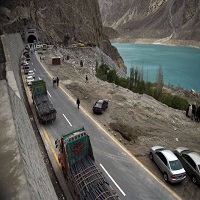The movie version of this script, we’re all familiar with: “no, your honour”, shouts the lawyer, the mother tears up, the judge bangs his gavel in approval and the hero walks off death row. Now, as the as the International Court of Justice at the Hague prepares to hear India’s appeal for the life of Kulbhushan Jadhav, the former Naval officer and alleged spy on death row in Pakistan, those are the events television commentators have led us to believe lie ahead. The truth is more complex: there’s no easy refuge from death row, even in The Hague’s impressive chambers, even if India wins.
First up, India’s lawyers have to jump over a large hurdle the country created for itself, frustrated by The Hague holding against its decision to close the airspace between East and West Pakistan, after the hijacking of an Indian Airlines plane by Kashmiri secessionists.
Though the judgment was delivered in 1972—by which time East Pakistan was liberated, and had become Bangladesh—New Delhi had become wary of international interference in its disputes with Pakistan. It therefore carved out a series of no-go zones for The Hague.
In 1974, then-External Affairs Minister Swaran Singh listed eleven areas India would not accept The Hague’s jurisdiction, including “disputes with the government of any State which is or has been a Member of the Commonwealth”;“disputes relating to or connected with facts or situations of hostilities, armed conflicts, individual or collective actions taken in self-defence” and the like; “disputes in regard to which the parties to the dispute have agreed”.
Now, Pakistan could argue these rule out consideration of the Jadhav case. It could, alternatively, seize on the opportunity to demand India take back its conditions, and try to bring its other disputes to The Hague’s courtrooms. No-one knows what it will do, as yet.
BJP party workers during a signature campaign for Kulbhushan Jadhav at Lalbaug on Tuesday. Express Photo by Prashant Nadkar
For its part, India will argue that its relying on judgments by The Hague that say of foreigners to meet with diplomatic officials from their countries after their arrest or detention is a human right. Both India and Pakistan are signatories to the Vienna Protocol of 1963, which gives their citizens this right; the right was, however, earlier thought to be that of the respective states, not individual citizens.
The Hague’s actual record of helping people denied access, though, isn’t great. The first major case it heard was in 1999, against the impending execution of Walter LaGrand, sentenced to death along with his brother Bernhard LaGrand to death in a bank robbery case in the United States. The Hague complied with Germany’s request for a provisional stand-still against execution, just as it has done in Jadhav’s case, but the United States Supreme Court refused to enforce this provisional order.
Indeed, the United States’ Solicitor-General argued that International Court of Justice provisional measures are not legally binding. Walter LaGrand was executed on March 3, 1999.
Mexico filed similar litigation in 2003. Here, The Hague held that the United States had breached its Vienna Protocol obligations by not informing the nearest Mexican consular outpost of the arrest of 52 citizens on death row.
President George W Bush agreed in 2005 to “review and reconsideration” of the cases by courts, to see if defendants’ rights had been jeopardised by lack of consular access. However, the United States Supreme Court struck down his position three years later, saying international treaty obligations could not override domestic law or the Constitution.
The end result has been a grim one: even though important international-law principles have been established, the prisoners for whom Avena was brought have been executed one by one.
The bottom line is this: should India manage to jump across the legal barricade it set up for itself in 1974, it will likely find the law is on its side. The law isn’t the same thing as justice, though—and it might do precious little to save Kulbhushan Jadhav’s life.














